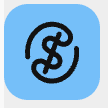
Pros of a Savings Account
- Less risk
Whenever you invest money in something, you run the risk of losing some or all of your funds. With a savings account, the risk is minimal and you get free insurance. Essentially the only ways to lose money from a savings account are if the bank goes bust or if you leave your username and password just lying around somewhere. The good news is that all savings accounts in the United States are insured by the federal government up to $250,000, so even if your bank crashes, you’ll still get your money back. As for the password, the banks know we don’t always do a good job of protecting ourselves, which is why most of them make us go through multi-factor authentication every time we log in.
- Competitive rates
You won’t find double-digit rates on a savings account, but you don't have to settle for less than 1%. The average national rate on a savings account is 0.10%, but online banks offer as high as 2.25% APY. That’s actually better than the rate of inflation, which is forecast to land at around 2% in 2020. If you’re planning on leaving your money in a savings account for a while, you’ll also benefit from compound interest, which is basically interest on interest.
- Checking features
These days, many online banks offer hybrid checking-savings accounts, or money market accounts with checking features. By hybrid checking-savings, we mean a savings account that includes checks, a debit card, and deposits and withdrawals. This is very convenient, because it means you can save money in the knowledge that you can draw on these funds whenever needed.
- Emergency funds
One of the good things about a savings account is you can get access to it in the case of an emergency. Many people actually use a savings account as a type of emergency fund. Setting up a small recurring deposit of, say, $10 per month won’t cost you a lot, but $120 per year in deposits plus the interest earned on it means you’ll have a useful amount of money in your account after a few years. Hopefully you’ll never need to tap into your emergency savings fund, but if you do, you’ll be glad you have it and that you didn’t lock all your money up in assets or investments.
- Applying for a credit card
One lesser-known benefit of having a savings account, at least for students or anyone who doesn’t have much credit history, is that it can help when applying for your first credit card. Whether you’re applying for a credit card from a bank, a retailer, or anyone else, the card provider will run a credit query to find out if you can be trusted to pay back the amount. If you don’t have a credit history, they will ask about bank accounts. At the very least, you’ll need to show you have a checking account. A savings account will strengthen your case.
Cons of a Savings Account
- Fees
Unfortunately, some online savings accounts do come with fees ranging from $1 per month to sometimes as high as $50 per month. The good news is that most online banks give their customers the opportunity to have the fee waived. Some banks waive the fee if the customer keeps their balance above a certain amount, while others have alternative formulas.
- Minimum requirements
The higher savings rates are generally reserved for depositors who agree to meet the minimum requirements, such as a minimum initial deposit or minimum balance. Minimum balances can range from as low as a few dollars to around as high as $10,000. Of course, even $10,000 is much cheaper than playing the stock market or investing your money in an expensive asset like property. It’s all relative.
- Not the highest yields
As we mentioned at the top of this article, various investments potentially offer much higher yields than a savings account. If you have an appetite for risk, a good advisor, and a good sense for investments, you may be able to earn double, triple, or even 20x what you can earn on a savings account.
- CDs offer better rates
A certificate of deposit, or CD, is an alternative type of savings account offered by banks where the depositor agrees to lock in their funds for a certain amount of time, usually ranging from 3 month to several years. Generally speaking, the longer the customer locks the money in for, the better the rate. At time of writing, online banks were offering 5-year CDs with as high as 3.10% APY, higher than the highest savings rate of 2.25%.
Our Verdict
Online savings accounts offer potentially decent returns with almost no risk. There’s no golden rule about how much to deposit in a savings account. Whether you have a few bucks to spare each month or thousands, you should strongly consider a savings account. If you only have enough money to open one type of savings or investment account, then a savings account is the safest option and gives you funds to draw on in the case of an emergency.
For people with plenty of spare change, there is value in boosting your 401K and investing in higher-yielding investments like stocks or property. Nonetheless, it’s always worthwhile putting some money into a savings account each month, even if only a small portion of your overall funds, just to know you have something to draw on.
Still can't decide? Explore our full list of our best online banking companies here.



